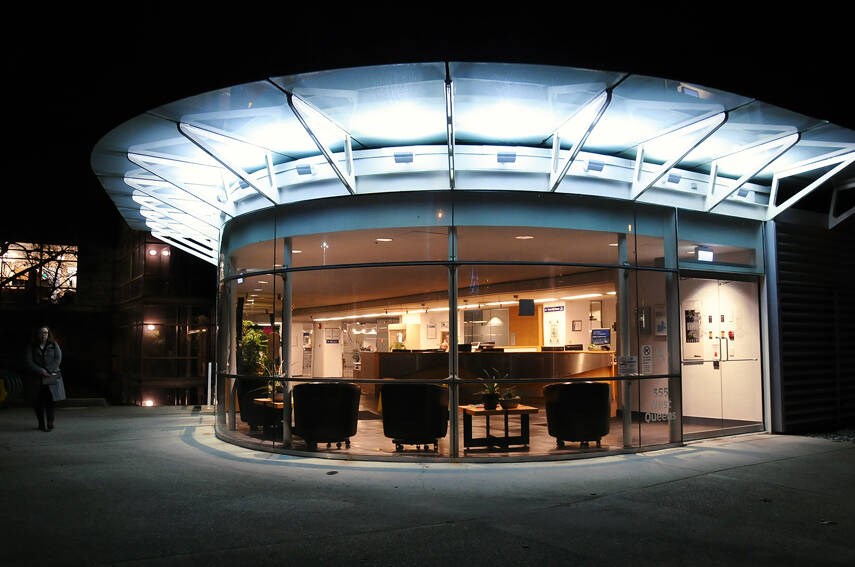A plan to build affordable housing in North Vancouver’s Lynnmour neighbourhood is getting a tepid response from neighbours.
District of North Vancouver council took public feedback to the plan for a building of up to six storeys, containing 100 to 180 below-market rental homes, just north of the Holiday Inn on Lillooet Road.
It’s the most recent case of council rezoning district-owned land before applying for provincial funding to build and operate below-market rentals.
Under the province’s funding formula, 20 per cent of the units will be rented at a deep subsidy, reserved for people on disability or income assistance. Half of the units will have their rents capped at 30 per cent of the household income for families on middle-incomes. And the remaining 30 per cent will be offered at below-market rates for people with a household incomes of roughly $82,000 to $128,000.
While no one at the public hearing spoke against the need for affordable housing, a swath of residents from the neighbourhood turned out to tell council it should be built elsewhere.
The most common concerns raised include traffic congestion on Lillooet Road, a lack of street parking, the size of the proposed development, the number of units it would contain and the loss of trees at the site.
Neighbour Andrea McHugh said she was eager to see affordable housing built, but questioned district staff’s assessment that Lillooet Road would be able to handle more cars coming and going.
“We are getting the information that that road can handle it. I go out in the mornings, I come back in the evenings and it’s not handling it now,” she said.
Christine Brooks noted there is already an affordable housing project in Lynnmour and drew applause from the council gallery when she suggested the district seek out wealthier neighbourhoods for social housing.
“I did notice there’s quite a bit of a gap in that Delbrook and Edgemont area and I was wondering if there’s an opportunity to maybe spread the love around a little bit,” she said.
Some suggested the lowest cost rentals would turn out like the single-resident occupancy hotels of the Downtown Eastside, bringing drug use and crime with them.
“Unfortunately, in my experience, a lot of these places turn into basically slumlord-type hotels where it’s atrocious,” said Paul Root, a first responder in Vancouver, adding he doesn’t want it in his own backyard. “I work my hands to the bone to be here and it’s not really fair to have that all taken away from me.”
A woman who introduced herself as Janice R. urged council to think about the longtime residents of the area who are simply fed up with “development stress.”
“I just hope that you will hear our voices, hear the voices of the people that are opposed. We have absorbed so much development in this area,” she said. “Some of us are done here.”
The affordable housing did have a smaller contingent of supporters, however, who focused on the desperate need for housing options for people on low incomes and those making working-class salaries.
Premier Street resident Geordan Hankinson said he was “unsettled” by some of the negative comments brought up at a previous public meeting.
“Who am I … as a homeowner in this neighbourhood, to gatekeep who gets to move into this neighbourhood next, because it’s been a great experience for our family,” he said. “I encourage all of us as residents to try and see the big picture for a project like this.”
Don Peters, chair of the Community Housing Action Committee, urged council to forge ahead with the project, in light “of our growing housing disaster.”
Rowan Gentleman-Sylvester also spoke to the need to facilitate housing options for people who didn’t have the fortune of buying in when prices were much lower and find themselves at the mercy of landlords who won’t take less than $2,000 a month for a one-bedroom apartment.
“We’re living through … a pretty horrific housing crisis and all of us need to be willing to create space in our communities to provide reliable and affordable homes,” she said. “To my neighbours, I recognize that change can be hard, but we really desperately need purpose-built affordable rentals in every single neighbourhood in the district.”
Council will vote on the rezoning at a later date. If it passes, the district will apply for provincial funding and seek a non-profit housing operator to run the site.




